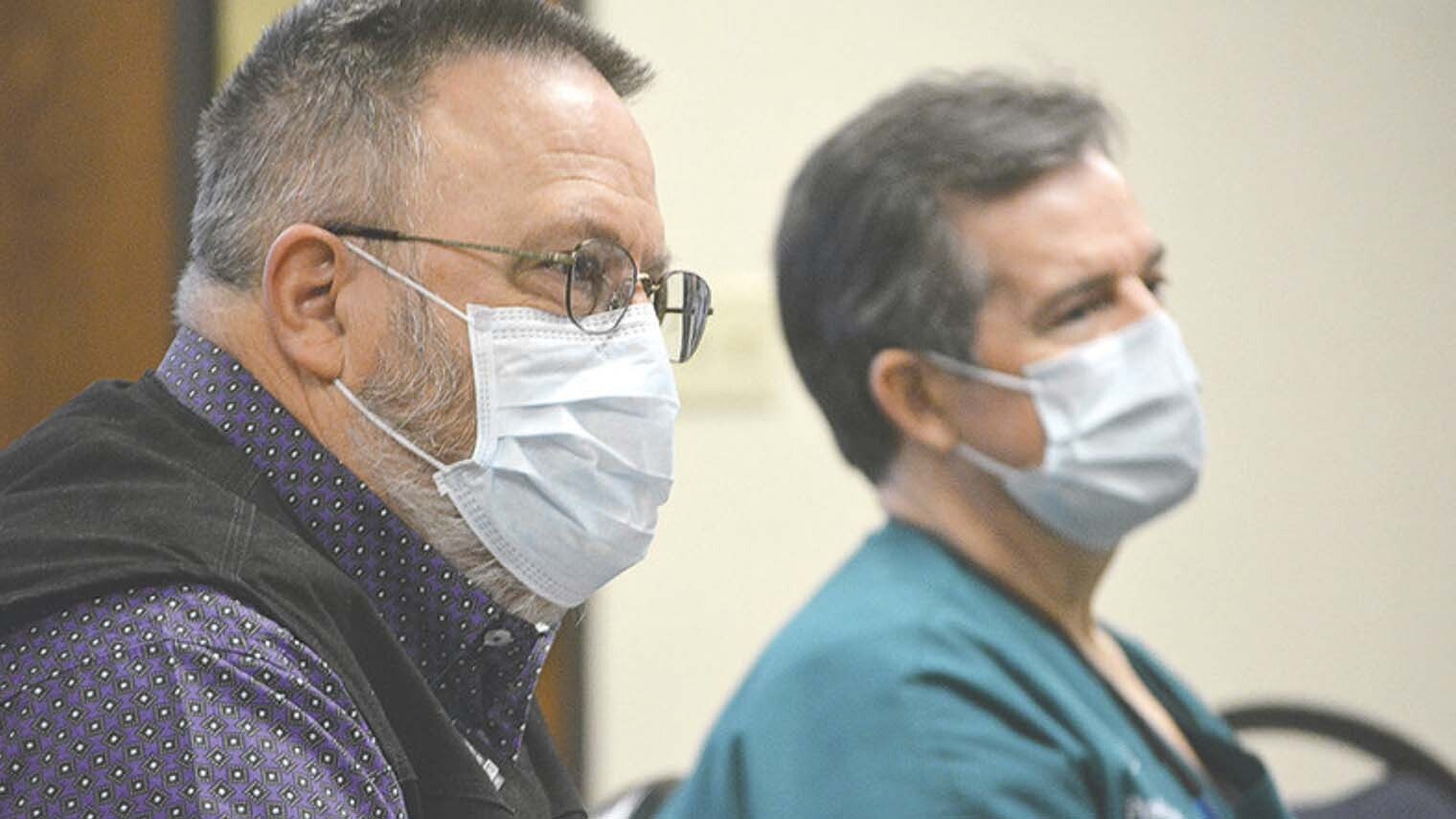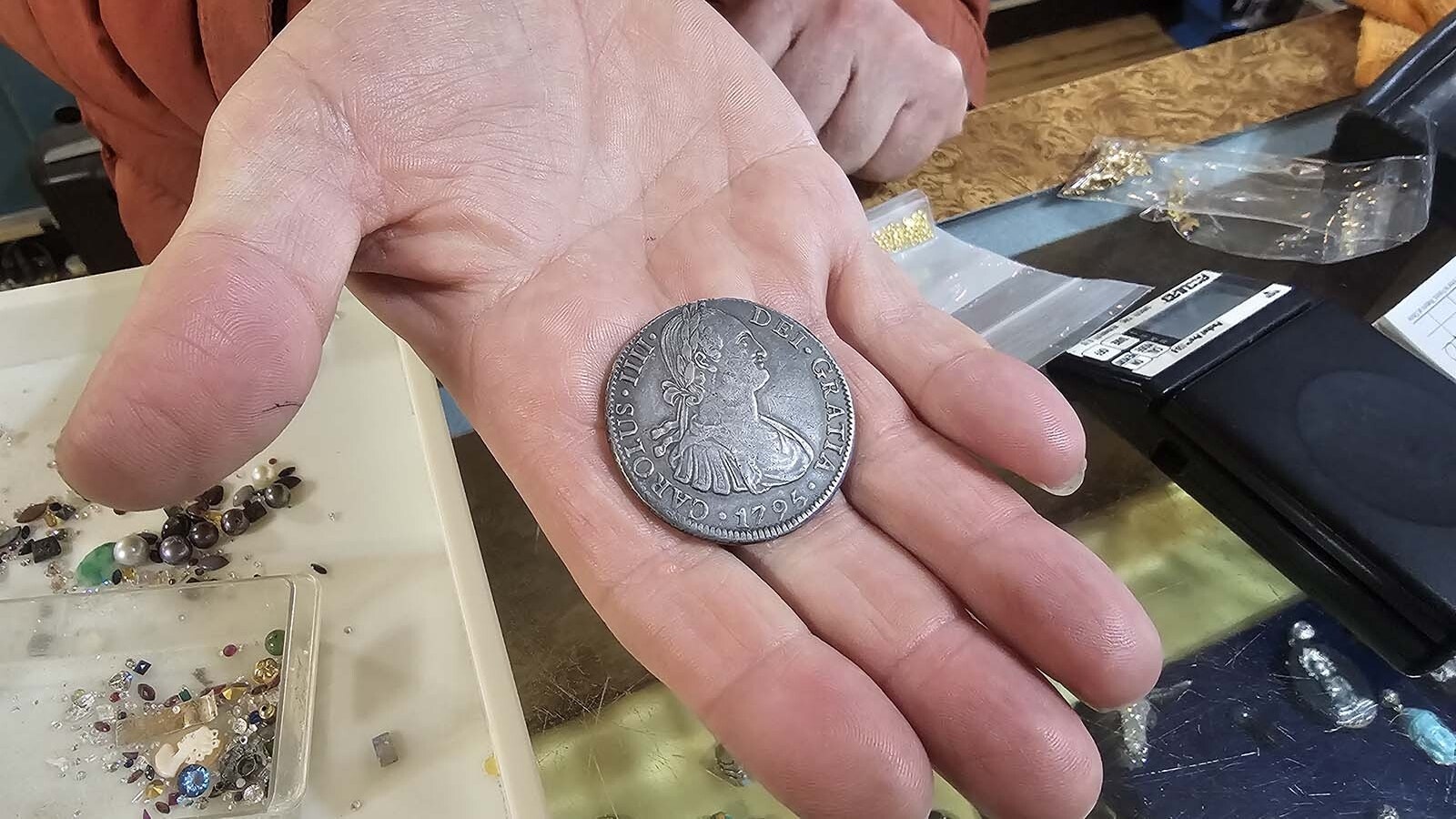By CJ Baker, Powell Tribune
With the spread of COVID-19 having slowed significantly in Park County in recent weeks, and hundreds of doses of vaccine being distributed, health officials think the county may be turning a corner.
“We believe this may be the early beginning of the end,” Park County Health Officer Dr. Aaron Billin said over the weekend.
He noted that various metrics in the county — from COVID-related hospitalizations to known cases of the disease to testing of local sewage — have “fallen precipitously.”
For instance, between Jan. 18 and Tuesday, the number of known confirmed and probable cases of COVID-19 within the county plummeted from 176 cases to 43. Additionally, the county saw only 26 newly confirmed cases over the past week — less than the number of cases sometimes logged within a single day in November, December and the first half of January.
Meanwhile the number of patients hospitalized with COVID-19 at Powell Valley Healthcare and Cody Regional Health has fallen from a peak of 17 patients in early January to just one on Tuesday.
“We’re doing tremendously well,” Billin told county commissioners.
In its most recent health orders, the state government relaxed its limit on indoor gatherings from 100 to 250 people, and Billin said he believes state officials will continue to ease those restrictions in the coming weeks and months.
However, Billin also expects the state’s mask mandate — requiring people to wear facial coverings in most public places — to stay in place for months. Given their reported effectiveness, their low cost and the fact that they don’t affect most businesses, Billin said there’s widespread agreement among public health officials that the masks “are the most effective thing we’re doing.”
Masking, social distancing and cooperating with quarantine and isolation orders got the county to this point, Billin said, “and we need to keep that up.”
“Despite our numbers looking immensely better, … undoing what we’ve done so far would be like quitting your diet halfway to your goal,” he said at Tuesday’s commission meeting.
Still, there remains public frustration with the continuing restrictions on everyday life.
Sharing concerns that he’s received from the public, Park County Commissioner Lloyd Thiel pressed health officials on, “When is this going to end?”
“I know there’s no golden answer to this, but you know, a little light at the tunnel would go a long way,” Thiel said. “So based on the progress that we’re seeing now, how far out are we looking at some type of relief to get back to some normalcy?”
Park County Public Health Nurse Manager Bill Crampton offered that, “this is going to go towards the end of the summer.”
“So we keep getting these answers, dragging on, dragging on,” Thiel responded, noting the initial perception that COVID-19 restrictions would be short-term.
“I’m just voicing my frustration along with everybody else out there,” Thiel said.
Billin indicated it will likely be six months or more before a lifting of the orders.
“It’s going to take through the summer to vaccinate the county at the rate the vaccine is coming,” he said. “And we won’t see significant progress towards herd immunity till most of the county is vaccinated or has had the virus.”
Although experts aren’t sure and the science is unsettled, the best guess to date has been that roughly 70% of the population needs to develop immunities to COVID-19 to achieve “herd immunity,” where it becomes difficult for the disease to spread in the community.
Since March, more than 2,500 confirmed and probable cases have been detected in Park County. That’s equal to nearly 9% of the county’s population (though CDC research suggests actual infections are much higher), while adding in the roughly 1,500 currently vaccinated people would bring the figure to not quite 14%.
There have been 23 Park County deaths attributed to COVID-19 since the pandemic began, including five older men with underlying health conditions who died last month.
“We will see more deaths reported as they lag one to two weeks behind,” Billin said Sunday.
Meanwhile, flu activity has been extremely low in Wyoming, with just some small outbreaks around the state, Crampton and Billin said; they were unaware of any cases in Park County.
“That’s a question that I do get from people, is, ‘How come flu disappeared? How come we’re not seeing any deaths recorded from the flu?’” Commissioner Dossie Overfield relayed.
Billin noted that all of the steps being taken to prevent the spread of COVID-19 also work to curb the spread of other respiratory diseases like the flu. He added that, “if all the hosts are being occupied by coronavirus, there’s not as much room left for flu,” Billin said. “So there’s some epidemiological pressure happening.”
The COVID-19 situation took a relatively sharp turn for the better in Park County. As of mid-January, the county ranked second-worst in the state in new daily cases on a per capita basis, trailing only Teton County. Since then, however, Park County has seen significant improvement to fall into the middle of the pack. Teton County’s numbers have also sunk, but it still has the highest number of active cases in the state (185 on Tuesday).
Billin suggested Teton County could be faring worse because of the so-called UK variant, which has been detected in two residents there. The CDC says more study is needed to determine whether the strain is any more dangerous, but evidence shows it spreads more easily and quickly.
“We want it [the variant] to stay in Teton County and not come over here,” Billin said. “So be grateful the park [Yellowstone] is closed and there’s no easy way to get there right now, not people … coming back and forth.”
Billin indicated that he supported the State of Wyoming’s decision to ease off the restrictions on indoor gatherings; he specifically said the state needed “to get more than 100 people attending athletic events, because schools have been doing a phenomenal job of keeping our kids safe.”
The public health officer noted that, while Wyoming’s public schools have remained open to in-person instruction since the fall, places like California have kept students in virtual classrooms; he said he has family members in the Golden State who haven’t been to church for nearly a year.
“Things could be a lot worse than they are in Wyoming,” Billin said.





